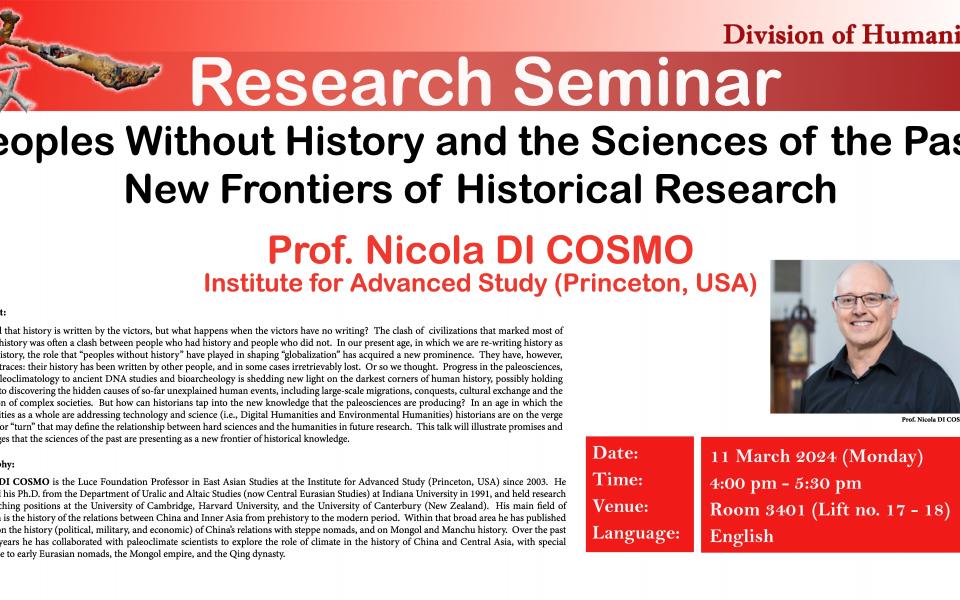Abstract:
It is said that history is written by the victors, but what happens when the victors have no writing? The clash of civilizations that marked most of human history was often a clash between people who had history and people who did not. In our present age, in which we are re-writing history as global history, the role that “peoples without history” have played in shaping “globalization” has acquired a new prominence. They have, however, left few traces: their history has been written by other people, and in some cases irretrievably lost. Or so we thought. Progress in the paleosciences, from paleoclimatology to ancient DNA studies and bioarcheology is shedding new light on the darkest corners of human history, possibly holding the key to discovering the hidden causes of so-far unexplained human events, including large-scale migrations, conquests, cultural exchange and the evolution of complex societies. But how can historians tap into the new knowledge that the paleosciences are producing? In an age in which the Humanities as a whole are addressing technology and science (i.e., Digital Humanities and Environmental Humanities) historians are on the verge of a major “turn” that may define the relationship between hard sciences and the humanities in future research. This talk will illustrate promises and challenges that the sciences of the past are presenting as a new frontier of historical knowledge.
Biography:
Nicola Di Cosmo is the Luce Foundation Professor in East Asian Studies at the Institute for Advanced Study {Princeton, USA) since 2003. He received his Ph.D. from the Department of Uralic and Altaic Studies (now Central Eurasian Studies) at Indiana University in 1991, and held research and teaching positions at the University of Cambridge, Harvard University, and the University of Canterbury (New Zealand). His main field of research is the history of the relations between China and Inner Asia from prehistory to the modern period. Within that broad area he has published widely on the history (political, military, and economic) of China’s relations with steppe nomads, and on Mongol and Manchu history. Over the past several years he has collaborated with paleoclimate scientists to explore the role of climate in the history of China and Central Asia, with special reference to early Eurasian nomads, the Mongol empire, and the Qing dynasty.
